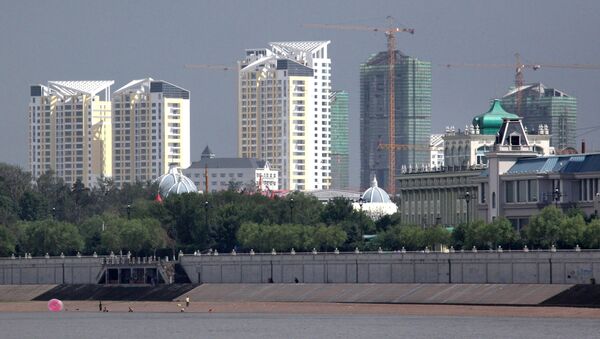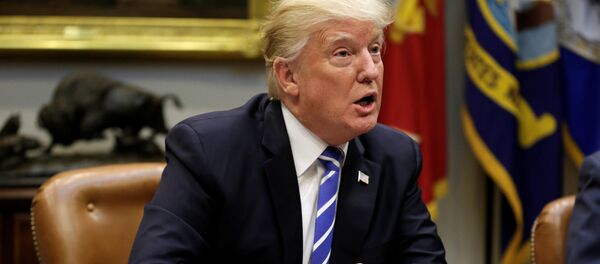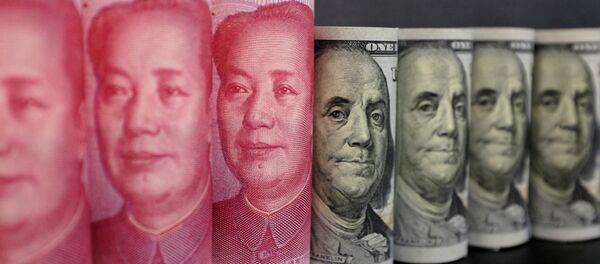Kristian Rouz — Small and medium-sized Chinese banks are reporting a slowdown in their lending activity, coupled with a mounting volume of non-performing loans (NPLs) that could jeopardize financial stability in several Chinese provinces.
Subsequently, the majority of commercial borrowers across China's provinces are cutting their liabilities, including by abstaining from taking out new loans. Meanwhile, some other companies are struggling due to the effects of excessive leverage coupled with murky exports forecasts — hence the rising share of delinquencies on the already existing loans.
"Small banks are the main forces for small business financing," Xu Chengyuan of Golden Credit Rating International Co. said. "Under capital constraints, they have to reduce lending."
The Communist Party of China has acknowledged the threat, and taken a dual approach to tackling the issue. Chinese financial authorities loosened bank reserve requirements on the one hand, and tightened lender oversight, on the other.
"Tighter party discipline doubtless will provide added teeth to the financial crackdown, increasing personal accountability of financial managers," James Stent of China Minsheng Banking Corp. said.
According to Chinese credit rating companies, larger government-backed Chinese banks have enjoyed rapid acceleration in loan issues this year. However, at least 13 smaller and medium-sized banks have been struggling since last year, mired in credit rating downgrades, declines in capitalization, profitability and operational volumes.
READ MORE: US-China Trade Tiff a Golden Opportunity for India — Minister
But when it comes to paying their bills, some local governments don't meet their obligations.
"Local governments had asked banks to give them money so we had to," an unnamed Chinese banker said, as quoted by Reuters. "But now they are saying ‘why did you lend it to me in the first place'."
And the central government appears to be siding with local authorities in their standoff with the struggling lenders. Beijing hasn't shown much concern about a possible monopolization in China's financial sector, although this could raise the costs of credit in the long run.
READ MORE: US Mulls Sanctions on Russia, China for Importing Iranian Oil — Mnuchin
CBIRC stressed current lending practice could provoke chaos in the Chinese financial sector. The regulator also vowed tough penalties for lenders facing the issues of non-performing loans — as the authorities believe the situation is a result of the speculative activity of the bankers in the first place.
"The message was clear," an unnamed financial sector executive said, as reported by the Straits Times. "Bankers will be held personally responsible."
Some observers say such a hardline regulatory stance will hardly help offset the mounting challenges facing the Chinese financial system. Tighter oversight and control could push an ever-increasing number of both lenders and borrowers into the "shadow banking" territory.
READ MORE: Trump Launches Trade War Against China…and the Rest of the World
This, coupled, with poor risk management and administrative pressure, puts small Chinese banks between the rock and a hard place — and likely up for acquisition by their more prosperous state-run financial enterprises.








